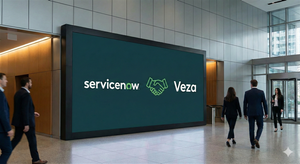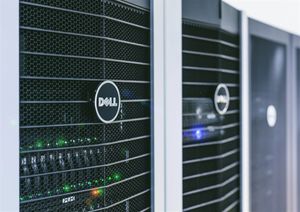
PHOENIX, AZ – November 11, 2025 – In a landmark move poised to reshape the landscape of advanced manufacturing and fuel the relentless advance of artificial intelligence, ManpowerGroup (NYSE: MAN) and the Maricopa Community Colleges today announced a strategic partnership. This collaboration aims to cultivate a robust pipeline of skilled talent for the rapidly expanding semiconductor industry, directly addressing a critical workforce shortage that threatens to bottleneck innovation in AI and other high-tech sectors. The initiative, centered in Arizona, is designed to provide rapid, industry-aligned training, creating direct pathways to high-demand careers and bolstering the nation's technological competitiveness.
This strategic alliance comes at a pivotal moment, as the global demand for advanced semiconductors—the foundational hardware for nearly all AI applications—continues to surge. By uniting ManpowerGroup's expertise in workforce solutions and talent strategy with Maricopa Community Colleges' extensive educational infrastructure, the partnership seeks to deliver scalable and inclusive training programs. The immediate goal is to prepare an additional 300 individuals for careers as semiconductor technicians in Arizona, with a broader vision to train thousands more in the coming years, ensuring a steady flow of skilled workers for new and expanding fabrication plants.
Technical Foundations: Rapid-Response Training for a High-Tech Future
The ManpowerGroup and Maricopa Community Colleges partnership is characterized by its pragmatic, industry-driven approach to workforce development, offering a suite of programs tailored to accelerate individuals into semiconductor manufacturing roles. At the forefront are the Semiconductor Technician Quick Start program and the newly launched Maricopa Accelerated Semiconductor Training (MAST) program, complemented by more extensive academic pathways like Certificates of Completion (CCL) and an Associate in Applied Science (AAS) in Semiconductor Manufacturing.
The Quick Start program is a prime example of this accelerated approach. This intensive 10-day course provides essential, hands-on learning in industrial technology specifically for the semiconductor industry. Its curriculum covers critical areas such as electrical theory, circuits, schematics, proper use of hand tools for maintenance, stringent workplace safety practices, clean room protocols and gowning, model-based problem solving (MBPS), lean manufacturing, and vacuum technology. Students engage with mechatronics training stations and delve into the chemistry and physics of vacuum technology. Designed for individuals with no prior experience, it culminates in an industry-relevant certification and college credits, successfully attracting a diverse demographic including people of color and first-generation college students. The MAST program, supported by a $1.7 million grant from the NSTC Workforce Partners Alliance by Natcast, aims to further expand these offerings with similar accelerated, industry-aligned content. Longer-term CCL and AAS programs provide more in-depth scientific principles and practical skills for those seeking broader career advancement.
This collaborative model significantly diverges from traditional, often slower, educational paradigms. Its key differentiators include rapid, industry-informed curricula co-created with major employers like Intel (NASDAQ: INTC) and Taiwan Semiconductor Manufacturing Company (NYSE: TSM), ensuring direct alignment with real-time job requirements. The emphasis on hands-on, practical training, including clean room simulations and equipment troubleshooting, directly prepares students for the demanding realities of a fabrication plant. By offering compressed learning periods and direct connections to hiring employers, the partnership acts as a vital conduit, rapidly bridging the critical skills gap. While specific reactions from the AI research community were not immediately available, the broader industry and government response has been overwhelmingly positive, with government officials endorsing Quick Start as a national model and major semiconductor companies actively collaborating to address the urgent labor shortage.
Catalyzing Growth: Impact on AI Companies, Tech Giants, and Startups
The strategic partnership between ManpowerGroup and Maricopa Community Colleges holds profound implications for AI companies, tech giants, and startups alike. The availability of a highly skilled workforce in semiconductor manufacturing is not merely an operational convenience; it is a foundational pillar for the continued acceleration and innovation within the entire technology ecosystem, particularly in AI.
For leading AI companies and major tech giants such as NVIDIA (NASDAQ: NVDA), Intel (NASDAQ: INTC), Samsung Electronics (KRX: 005930), TSMC (NYSE: TSM), Google (NASDAQ: GOOGL), Meta (NASDAQ: META), and Microsoft (NASDAQ: MSFT), a steady supply of talent capable of designing, manufacturing, and operating cutting-edge chips is non-negotiable. The existing skills gap has intensified the talent war, driving up labor costs and potentially delaying the development and deployment of next-generation AI hardware. This partnership directly aims to alleviate these pressures, ensuring the efficient operation of multi-billion-dollar fabrication plants, thereby reducing operational costs and accelerating innovation in AI hardware, from generative AI chips to high-performance computing accelerators. Companies like Intel, as an explicit partner, stand to directly benefit from a pipeline of technicians trained to their specific standards, while TSMC, which faced delays in its Arizona factory due to worker shortages, will find a much-needed local talent boost.
The competitive landscape is also set to shift. A larger, better-trained talent pool can ease the intense competition for semiconductor professionals, potentially lowering recruitment costs and making it easier for companies of all sizes to find necessary expertise. This directly translates into increased innovation capacity and faster product development cycles, leading to quicker breakthroughs in AI capabilities. While dominant players like NVIDIA currently hold a strong lead in AI hardware, an improved talent pipeline could enable competitors like AMD (NASDAQ: AMD) and emerging startups focused on niche AI silicon to become more competitive, fostering a more diversified and dynamic market. This initiative primarily serves as a positive disruption, mitigating the negative impacts of talent shortages by accelerating the development of more powerful and efficient AI chips, potentially leading to faster AI advancements and more affordable AI hardware across the board.
Broader Horizons: AI's Infrastructure and Societal Resonance
The ManpowerGroup and Maricopa Community Colleges partnership transcends local workforce development; it is a critical investment in the very infrastructure that underpins the global AI revolution. This initiative directly addresses the foundational requirement for advanced AI: the sophisticated hardware that powers it. The relentless demand for processing speed and energy efficiency, driven by increasingly complex AI models like large language models, has created an insatiable need for specialized semiconductors—a demand that cannot be met without a robust and skilled manufacturing workforce.
This partnership fits squarely into the broader AI landscape by tackling the most tangible bottleneck to AI progress: the physical production of its enabling technology. While AI milestones have historically focused on algorithmic breakthroughs (e.g., Deep Blue, deep learning, generative AI), this initiative represents a crucial foundational enabling milestone. It's not an AI breakthrough in itself, but rather a vital investment in the human capital necessary to design, build, and maintain the "picks and shovels" of the AI gold rush. Without a sufficient supply of advanced semiconductors and the skilled workforce to produce them, even the most innovative AI algorithms cannot be developed, trained, or deployed at scale. This effort reinforces Arizona's strategic goal of becoming a prominent semiconductor and advanced manufacturing hub, directly supporting national CHIPS Act objectives and bolstering the U.S.'s competitive advantage in the global race for AI leadership.
The societal impacts are far-reaching and largely positive. The programs create accessible pathways to high-paying, high-tech careers, fostering economic growth and opportunity for diverse populations. By enabling AI advancements, the initiative indirectly contributes to tools that can automate repetitive tasks, allowing human workers to focus on higher-value activities. However, potential concerns include the broader trend of AI-driven job displacement, necessitating continuous reskilling efforts, and the massive energy consumption of AI data centers and manufacturing processes, which raises significant environmental challenges. The ethical implications of widespread AI adoption—such as bias, privacy, and accountability—also remain critical considerations that must be addressed in parallel with technological progress.
The Road Ahead: Anticipating Future AI and Workforce Evolution
The strategic partnership between ManpowerGroup and Maricopa Community Colleges marks a significant step, but it is merely the beginning of a sustained effort to secure the future of semiconductor manufacturing and, by extension, the advancement of AI. Near-term developments will see the continued expansion of programs like Quick Start and MAST, with Maricopa Community Colleges aiming to train between 4,000 and 6,000 semiconductor technicians in the coming years. ManpowerGroup will closely monitor key metrics, including enrollment numbers, job placement rates, and the continued engagement of major industry players.
Looking further ahead, the long-term vision for the semiconductor talent pipeline is one of continuous evolution and expansion. Experts predict the global semiconductor industry will need over one million additional skilled workers by 2030, with the U.S. facing a deficit of up to 146,000 workers by 2029. This necessitates diversified talent sourcing, continuous upskilling and reskilling programs, and robust strategic workforce planning. Governments and industry will continue their collaborative efforts, driven by initiatives like the U.S. CHIPS and Science Act, to bolster domestic manufacturing and research. In parallel, AI hardware itself will continue its rapid evolution, with near-term developments focusing on even more specialized AI chips (NPUs, TPUs), an "arms race" in High-Bandwidth Memory (HBM), and the increased integration of AI into chip design and manufacturing processes for optimization.
On the horizon, five to ten years out, we can expect transformative advancements such as photonic computing, in-memory computing, and neuromorphic computing, which promise significant gains in speed and energy efficiency for AI workloads. Quantum computing, while nascent, holds the potential for revolutionary AI processing. These hardware innovations, coupled with a highly trained workforce, will unlock advanced applications in autonomous systems, smart manufacturing, edge AI, healthcare, and clean energy. However, challenges persist: the intensifying talent shortage, the need to keep pace with rapid technological change, the high costs of innovation, the energy consumption of AI, and geopolitical risks all demand ongoing attention. Experts predict that AI will augment human engineers rather than replace them, creating new roles in managing complex AI and automated systems. The future of AI will increasingly hinge on hardware innovation, with a strong emphasis on sustainable practices and ethical considerations. The ability to identify, recruit, and develop the necessary workforce cannot rely on historical methods, making partnerships like this critical for sustained progress.
A New Era: Securing AI's Foundation
The partnership between ManpowerGroup and Maricopa Community Colleges represents a critical inflection point in the narrative of artificial intelligence. While AI often captures headlines with its dazzling algorithmic breakthroughs and ever-more sophisticated models, the truth remains that these advancements are fundamentally tethered to the physical world—to the silicon chips that power them. This collaboration is a powerful testament to the understanding that securing the future of AI means first securing the human talent capable of building its very foundation.
This initiative's significance in AI history is not as a new algorithm or a computational feat, but as a vital, pragmatic investment in the human capital and infrastructure that will enable countless future AI milestones. It addresses a real-world constraint—the skilled labor shortage—that, left unchecked, could severely impede the pace of innovation. By creating accessible, accelerated pathways to high-tech careers, it not only strengthens the domestic semiconductor supply chain but also fosters economic opportunity and diversity within a crucial industry. As the demand for AI continues its exponential climb, the long-term impact of such partnerships will be measured in the resilience of our technological ecosystem, the speed of our innovation, and the inclusivity of our workforce.
In the coming weeks and months, the tech world will be watching closely as these programs scale. Key indicators will include enrollment numbers, job placement rates, and the continued engagement of major industry players. The success of this model in Arizona could well serve as a blueprint for similar initiatives nationwide, signaling a collective commitment to building a robust, future-ready workforce for the AI era. The message is clear: the future of AI is not just about smarter algorithms, but about smarter strategies for developing the talent that brings those algorithms to life.
This content is intended for informational purposes only and represents analysis of current AI developments.
TokenRing AI delivers enterprise-grade solutions for multi-agent AI workflow orchestration, AI-powered development tools, and seamless remote collaboration platforms.
For more information, visit https://www.tokenring.ai/.





